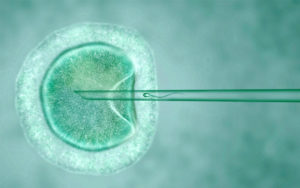Introduction
As usual, any new technology brings confusion in public minds and develops myths about it. Similarly, there are common myths about IVF and in this article, we are going to discuss them.
The most popular assisted reproductive technology type, in vitro fertilization, or IVF, is used to manage people who are having trouble getting pregnant. As usual, any new technology brings confusion in public minds and develops myths about it. IVF is a procedure for mixing sperm and eggs outside the body. IVF has become almost a household term in India, thanks to the influence of numerous Bollywood actors, novelists, and journalists who chose to freeze their eggs and inspired many others to do the same.
Due to its success, IVF has gained a lot of popularity, with more and more couples and individuals searching for detailed information about the procedure.
Unfortunately, seeking out information regarding IVF can result in falsehoods and fallacies. Certain IVF myths are stunningly false, but there may be a grain of truth embedded in others. We want to assist in dispelling these misconceptions and fallacies once and for all. Here, we dispel the top IVF myths by separating fact from fiction.
5 Common Myths About IVF
The top five IVF-related myths are below. Avoid the impulse to rely on the internet and seek the opinion of a reproductive specialist if you have any questions about any fertility procedure. Making the best fertility treatment choices is a very personal choice. Find out the truth from the most significant person—your doctor.
1: “IVF is your Last Resort”
Your experience with infertility is different, and the treatment you should get should also be unique. In humans in their early 40s, 1 in 3 couples and about 1 in 6 couples will have trouble getting pregnant. Your age significantly impacts your achievement, but other variables may also play a role.
IVF is not the only accessible form of therapy; yet, for some people, it ends up being their only choice. These include fallopian tube injury, limited egg reserve, complete blockage, and moderate to severe male factors.
Since many couples have several factors that affect their fertility, treatment is highly individualized. You will select the ideal course of treatment for you, your partner, and your doctor.
2: “Egg donations can lower their count.”
A woman has more than 400,000 eggs at menarche. Only 400 of those are necessary for a total throughout a lifetime. Each month, around twenty eggs move into the body. Only one or two of those are sufficiently mature to be released during ovulation.
Of the outstanding eggs, 19 to 18 lose during ovulation. IVF can help preserve the development of these fantastic eggs. As a result, the donation cannot aid in egg fertilization.
3: “IVF is excruciating.”
IVF doesn’t hurt. A technologically improved pen helps to provide the painless injectable medication required in the IVF process. And while the patient is unconscious, the egg retrieval procedure is carried out. IVF is, therefore, not at all a painful procedure.
4: “Malformations and congenital disabilities are common in IVF babies.”
The chance of having an abnormal child born through IVF is relatively low. Just like in the general population, there is a risk of an abnormal fetus that is unpredictable and carried through IVF.
5: “IVF raises your chance of developing cancer.”
According to all studies and medical research, there is no proven link between cancer (particularly uterine and breast cancer) and IVF. Except for ovarian cancer, which has a very low likelihood of occurring (15 in 10,000), women can undergo a decent number of attempts at reproductive treatments without experiencing any elevated risk of cancer.
Always speak with your Doctor
We hope our debunking of myths has allayed your worries. Don’t let IVF falsehoods mislead you. If you have any questions, always contact your fertility doctor.
In west Uttar Pradesh, you can contact the Gynaecologist of Ravi Hospital Group in Noida, Agra, Firozabad and Aligarh for more details.
Disclaimer
This article should not be considered a substitute for medical advice. Please consult your treating Physician or Gynaecologist for more details.




